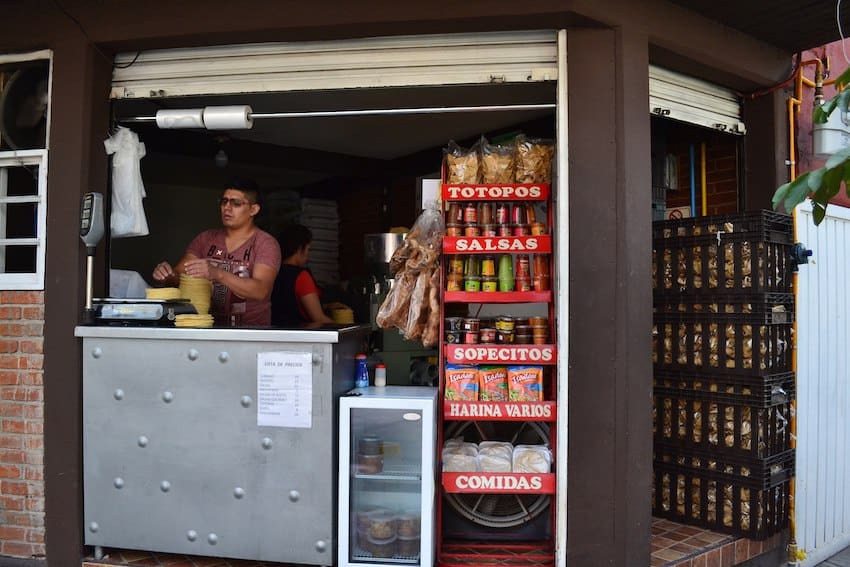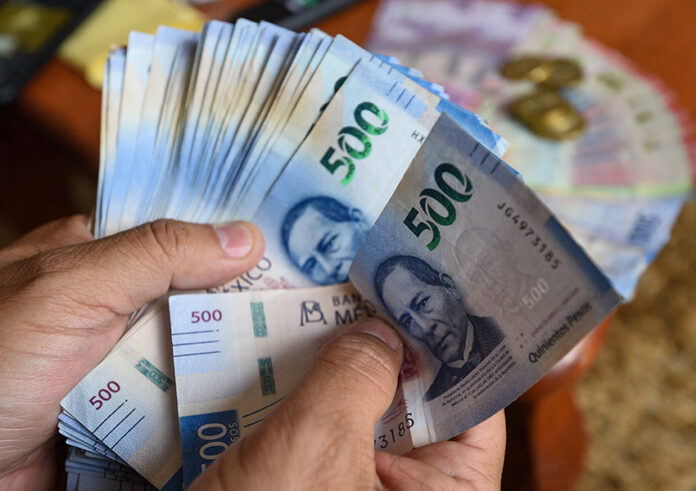United States President Donald Trump’s likely designation of Mexican drug cartels as foreign terrorist organizations will have a major impact on banks and other businesses in Mexico, according to experts consulted by Bloomberg News.
Trump signed an executive order on Monday entitled “Designating cartels and other organizations as foreign terrorist organizations and specially designated global terrorists.”
The order directed U.S. Secretary of State Marco Rubio to “make a recommendation” regarding the designation of specific cartels as terrorist organizations within 14 days.
Bloomberg reported that such a designation “risks creating a chilling effect on financial firms and other companies over fears they could face severe penalties by even unwittingly serving or paying criminals.”
Citing former officials, the news agency said that “Mexico’s banking industry is particularly likely to take a more conservative approach to lending and other services given its role as a go-between on transactions.”
However, the president of the Economic Analysis Committee of the Mexican Institute of Public Accountants told the El Financiero newspaper — a Bloomberg partner — that the U.S. government can’t unilaterally take action against banks in Mexico in money laundering cases.

Ernesto O’Farrill said that U.S. authorities will need to work on a “framework for cooperation and collaboration” with Mexico in order to crack down on financial institutions facilitating cartel transactions here.
Nevertheless, the designation of Mexican cartels as terrorist organizations in the United States would likely lead banks in Mexico to exercise even more caution than they already do to avoid facilitating illicit transactions. Mexican authorities can, of course, take their own action against banks facilitating the movement of illicit money. They have previously frozen accounts linked to criminal organizations including the Jalisco New Generation Cartel (CJNG).
A U.S. terrorist designation will likely apply to powerful Mexican criminal organizations such as the Sinaloa Cartel and the CJNG, which former Drug Enforcement Administration (DEA) chief Anne Milgram said together pose “the greatest criminal threat the United States has ever faced.”
Their illicit activities — which are not limited to drug trafficking — generate billions of dollars in revenue per year. The two cartels operate on both sides of the Mexico-U.S. border and in many other countries, according to the DEA.
‘A challenge to the financial system like it has never seen’
Sandro García, a former anti-money laundering official at Mexico’s National Banking and Securities Commission, told Bloomberg that the designation of cartels as foreign terrorist organizations represents “a challenge to the financial system like it has never seen.”
“This is going to be ‘know your customer times 10,'” said García, who now works as an independent consultant.
Bloomberg reported that banks are “deeply wary of the risks of inadvertently financing illicit activities and the steep financial penalties they could face.”

Citing former officials, the news agency said that Mexico’s banking sector, which includes foreign banks such as BBVA, Santander and Scotiabank, “may curtail business in areas known to be connected to the drug trade, from mining and livestock to transportation and agriculture.”
A spokesperson for the Mexican Banking Association told Bloomberg that banks in Mexico have solid relationships with authorities in the United States and fully comply with money laundering regulations. The spokesperson said that the banks are analyzing developments in the United States and will soon issue a position.
‘This is going to have a seismic impact on business and politics in Mexico’
Bloomberg reported that the implications of designating Mexican cartels as foreign terrorist organizations “will stretch far beyond just banks” given that cartels “hold sway in vast areas of Mexico and have diversified into extortion rackets as well as networks of front companies.”
Trump’s executive order said that “in certain portions of Mexico,” cartels “function as quasi-governmental entities, controlling nearly all aspects of society.”
Bloomberg said that “depending on how far Trump enforces the new order — which will name cartels within 14 days — it could ensnare real estate, gasoline sales, security services, auto parts and other manufacturing operations that may be paying protection or dealing with suppliers who have criminal links.”
Paul Craine, a consultant and former head of the DEA in Mexico, told the news agency that “this is going to have a seismic impact on business and politics in Mexico.”

“You look at the amount of money that’s generated by the cartels through, not just drug trafficking, but through all of their criminal business lines, and it’s just so intertwined into the economy,” he said. “You start seeing all the tentacles.”
US could also target remittances
Shannon O’Neil, senior vice president and senior fellow for Latin America studies at the Council on Foreign Relations, told Bloomberg that the United States government could target the U.S. remittances industry as part of its efforts to crack down on cartels.
Mexican think tank Signos Vitales said in a 2023 report that around 7.5% of the more than US $58 billion in remittances sent to Mexico in 2022 could be linked to drug trafficking.
“A crackdown on remittances could embroil companies like Western Union,” Bloomberg reported.
However, a representative for Western Union told Bloomberg that the company’s “advanced systems screen transactions in real time against internal and government watchlists.”
“We also work closely with law enforcement, regulatory authorities, and other government agencies globally to address these risks and foster the integrity of the global financial system,” the representative said.
With reports from Bloomberg
